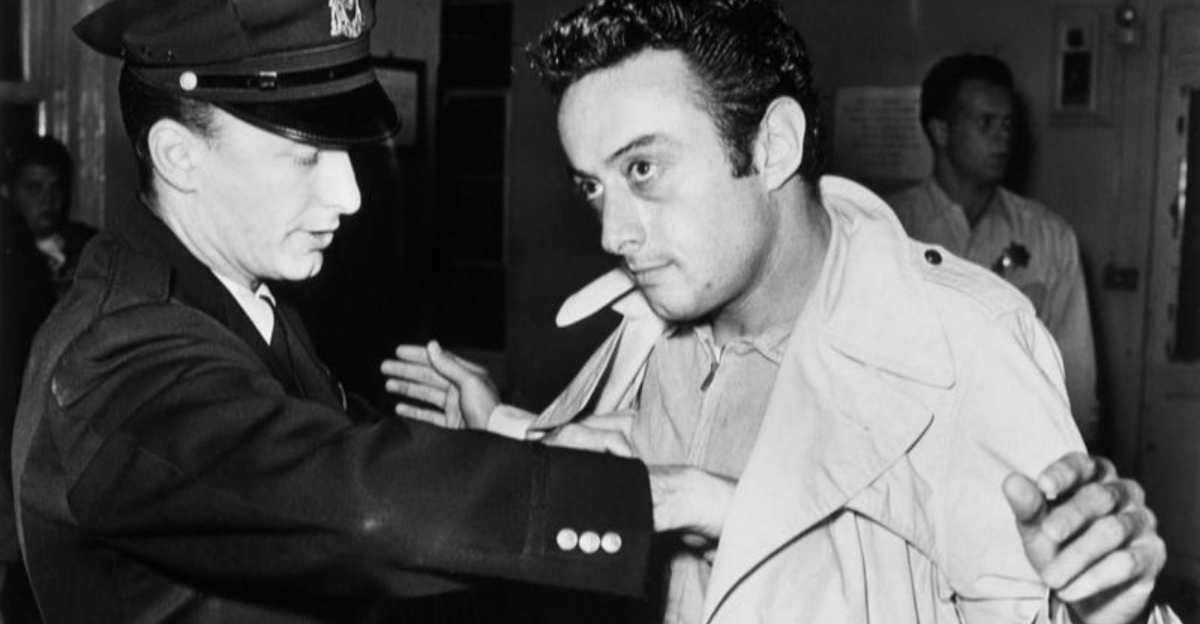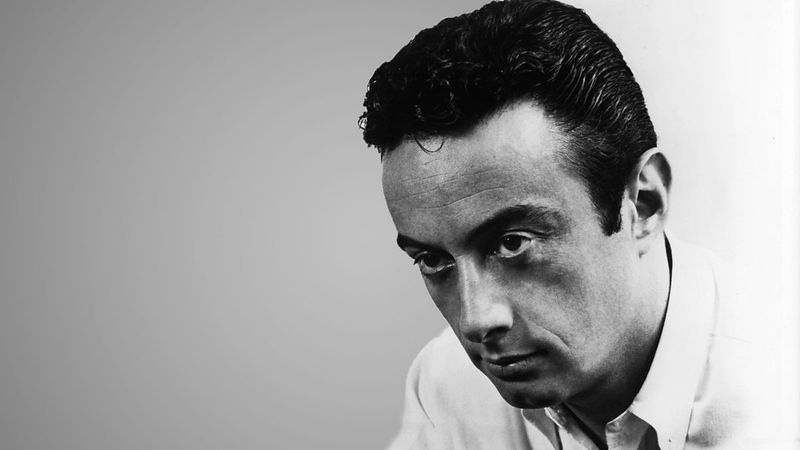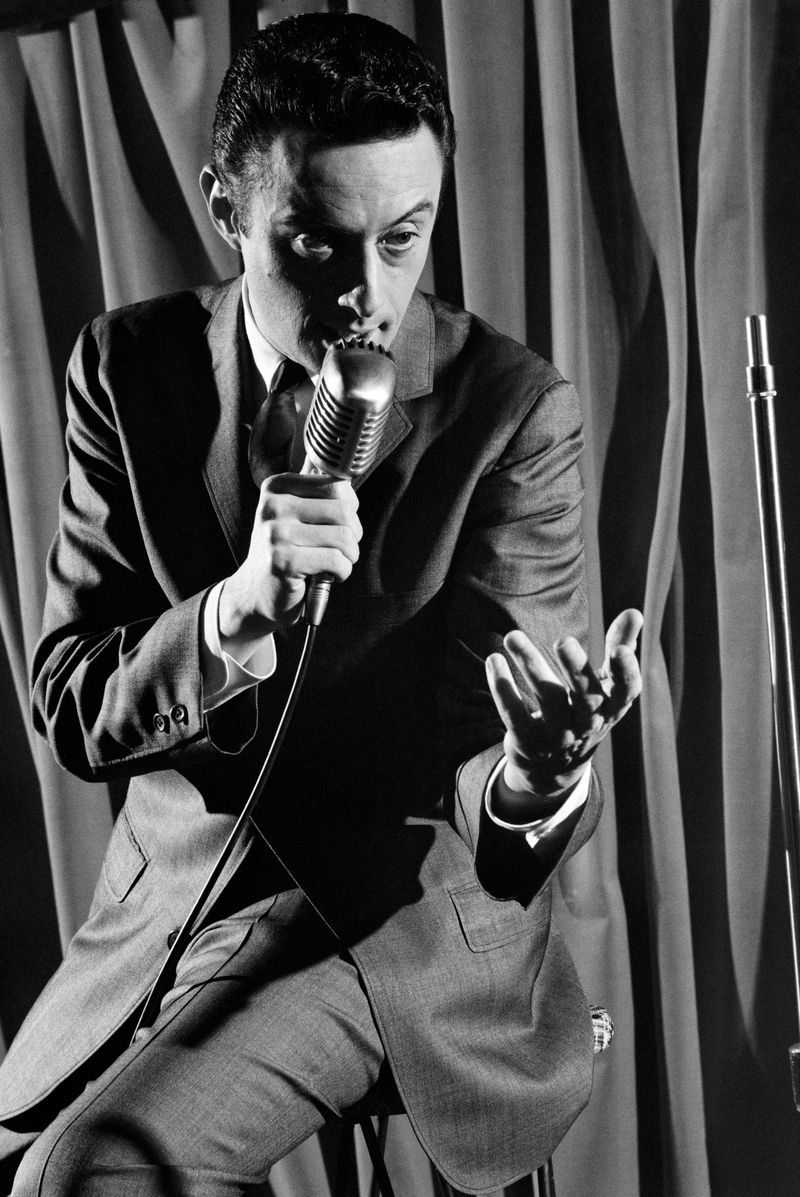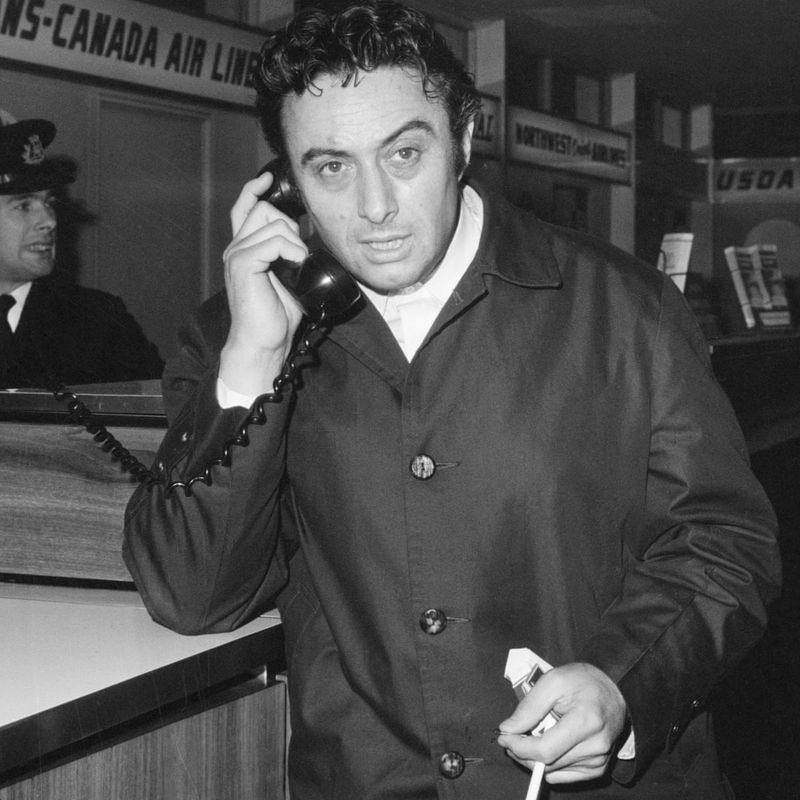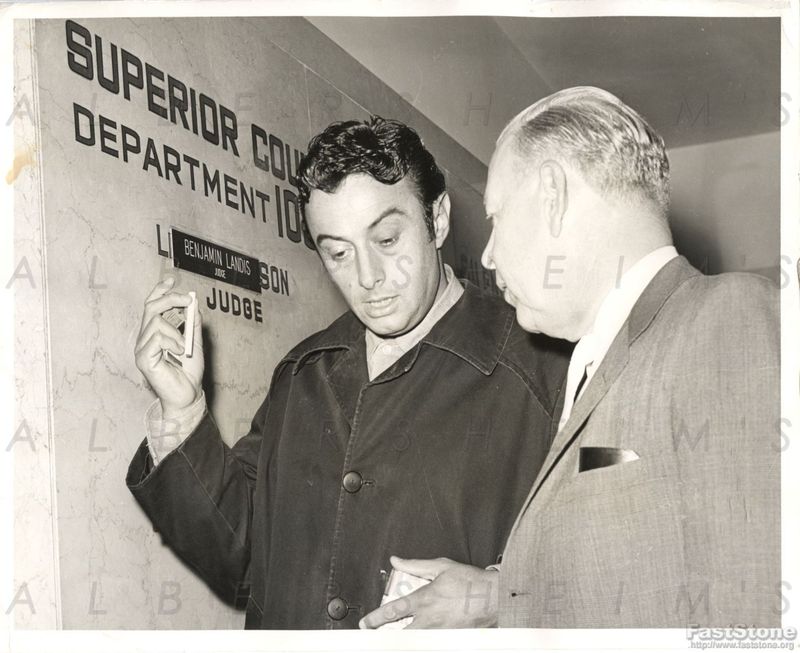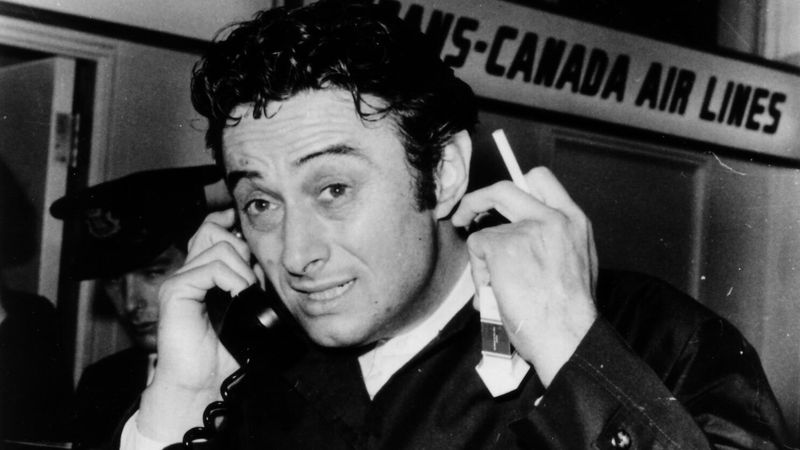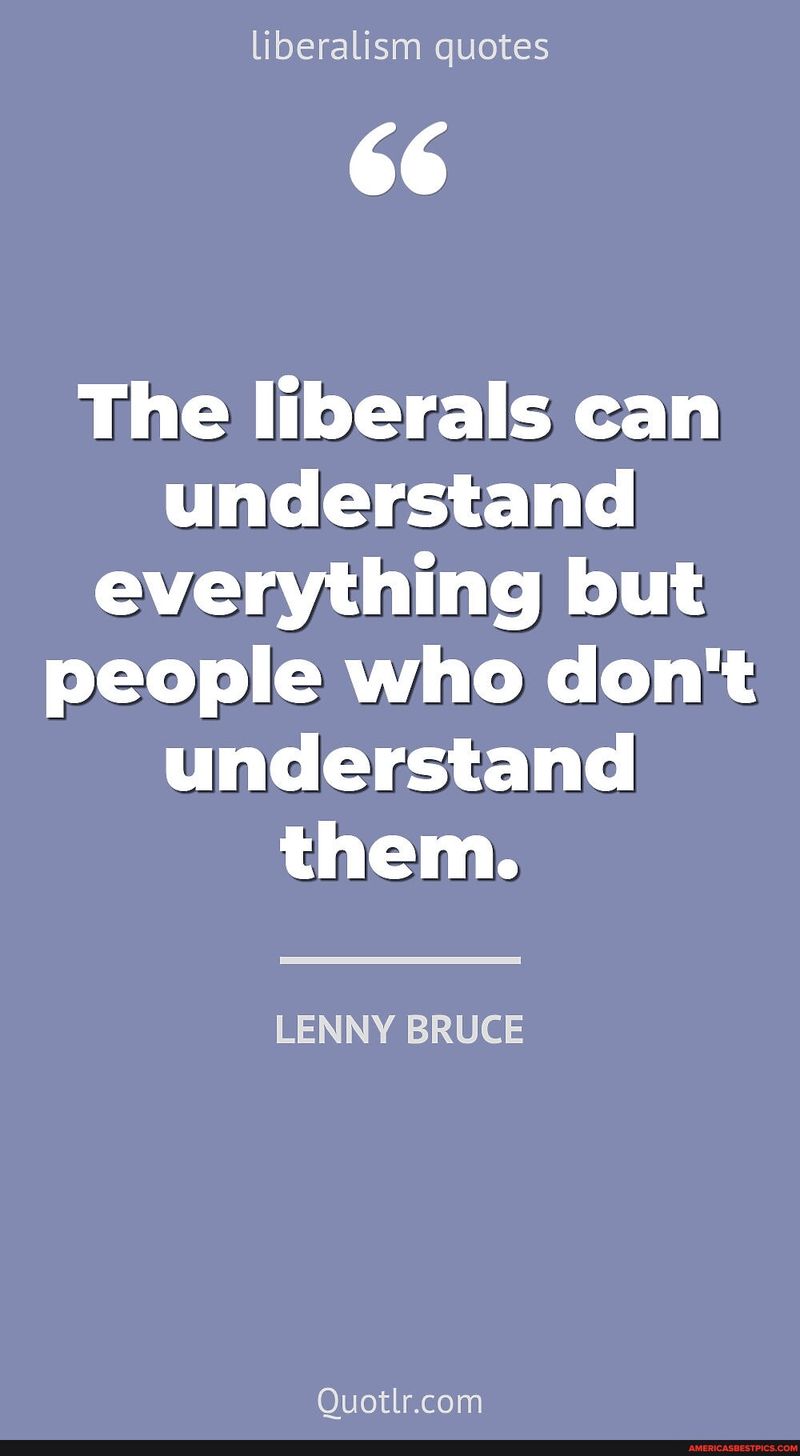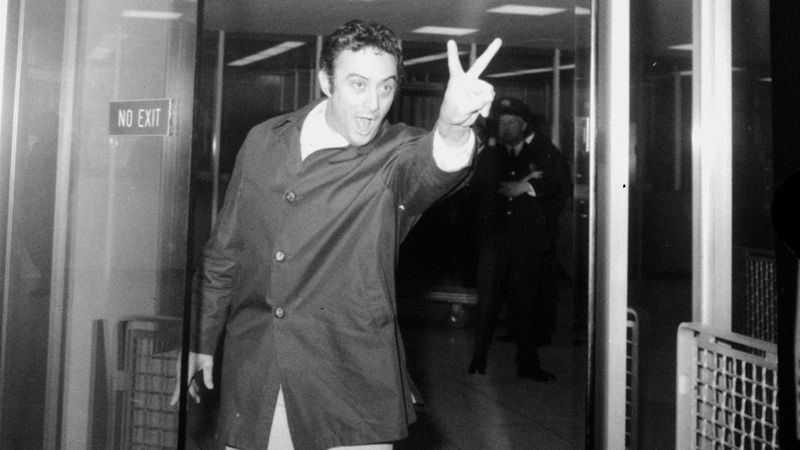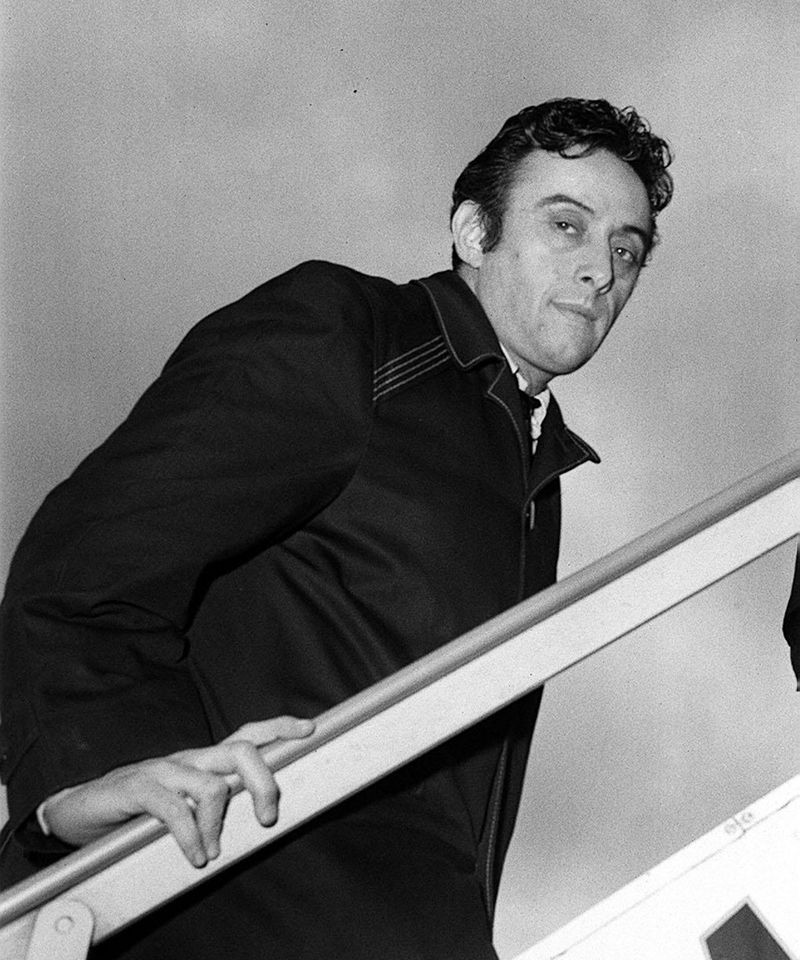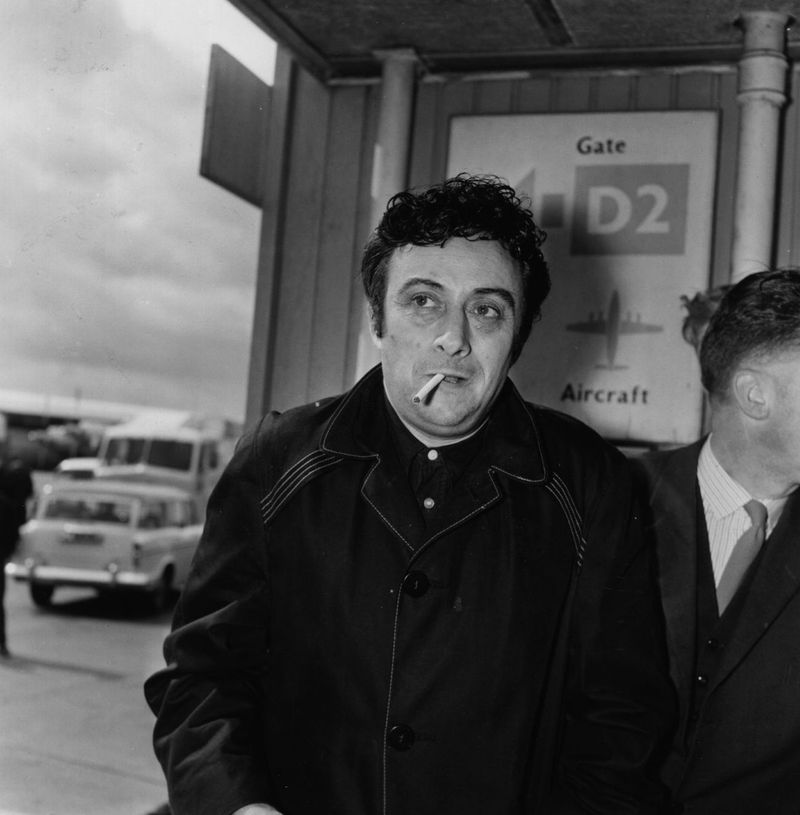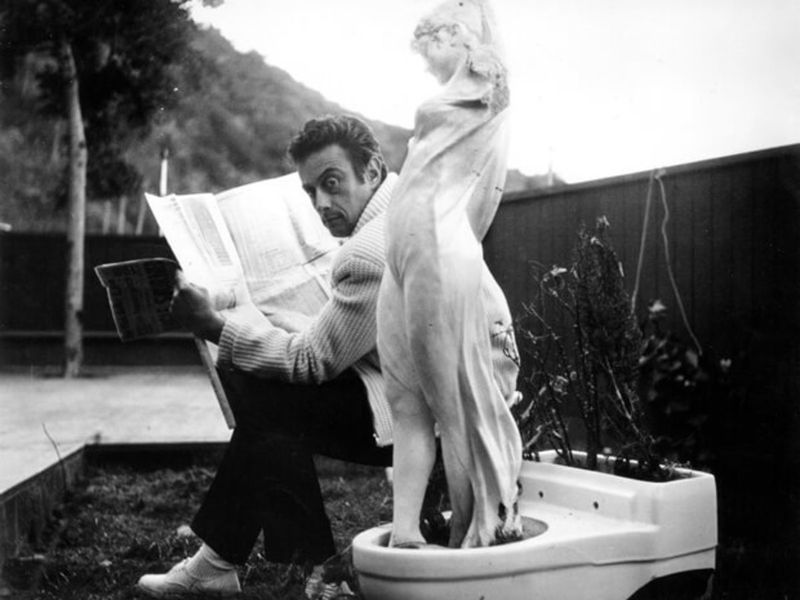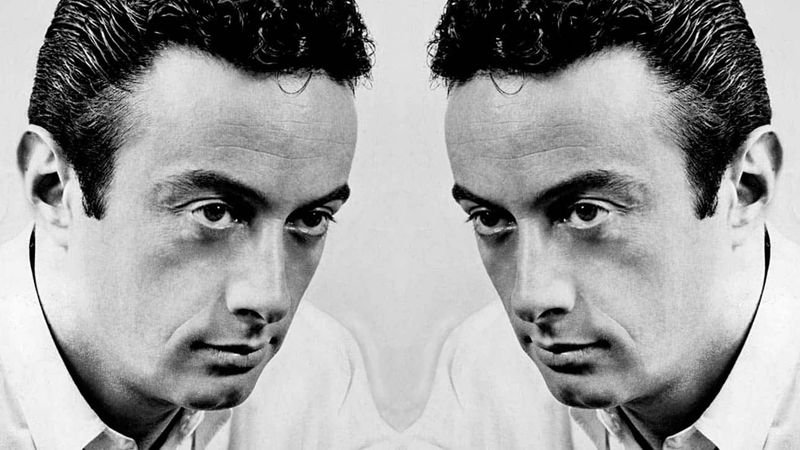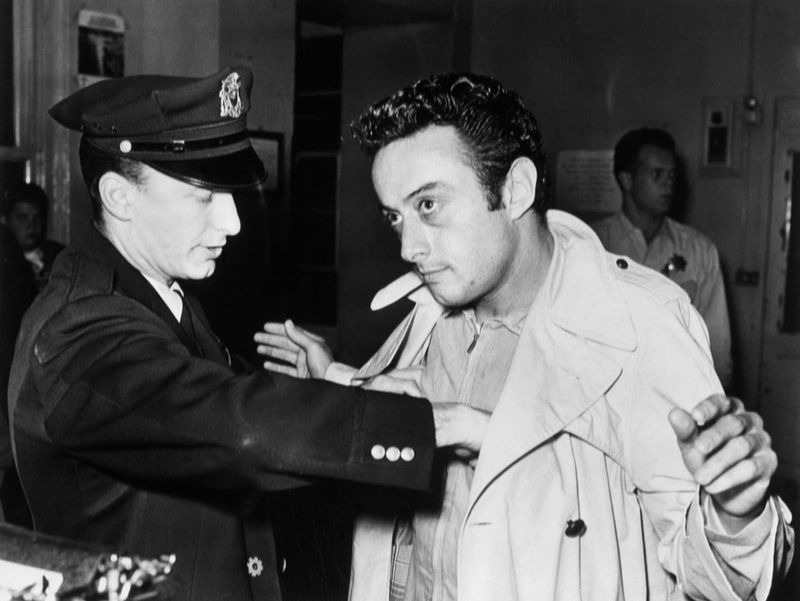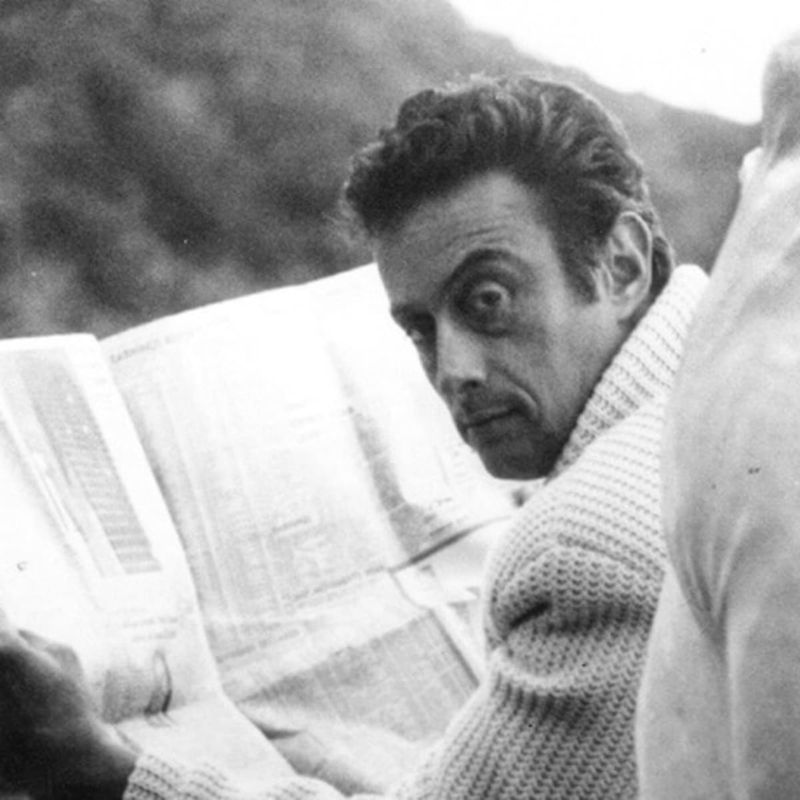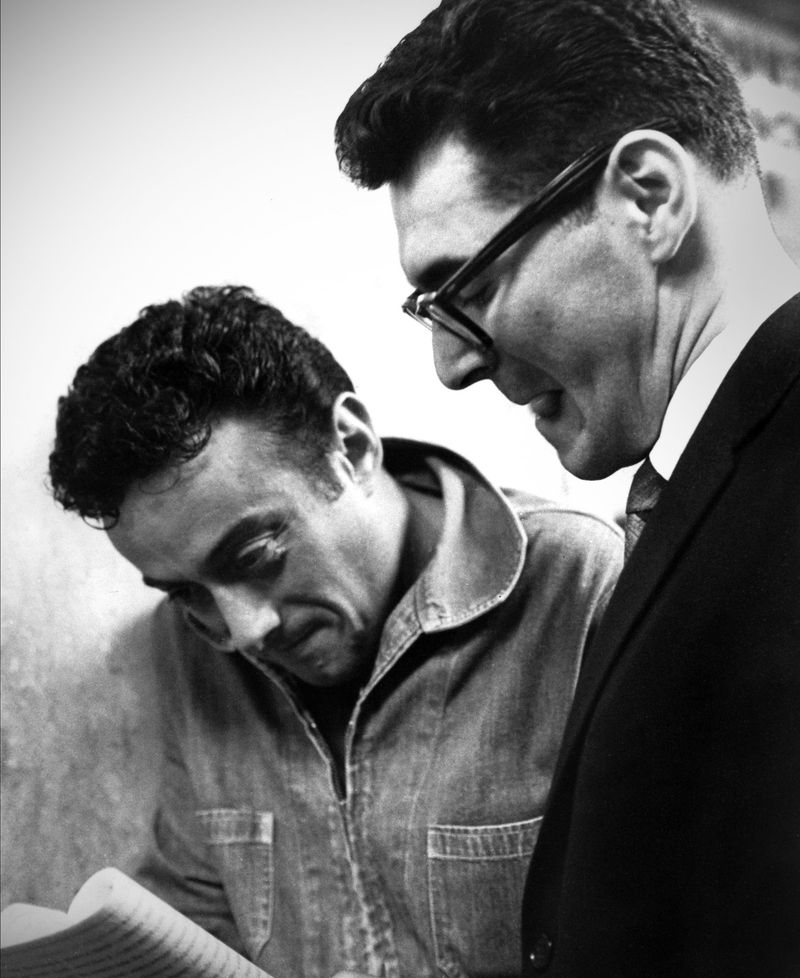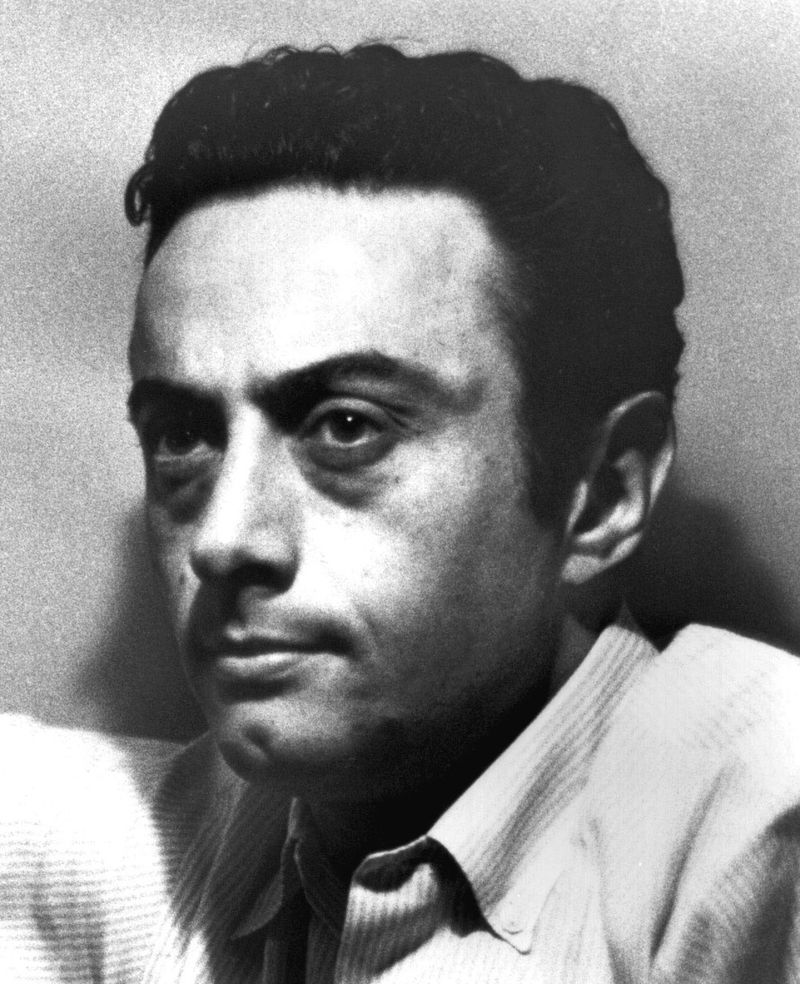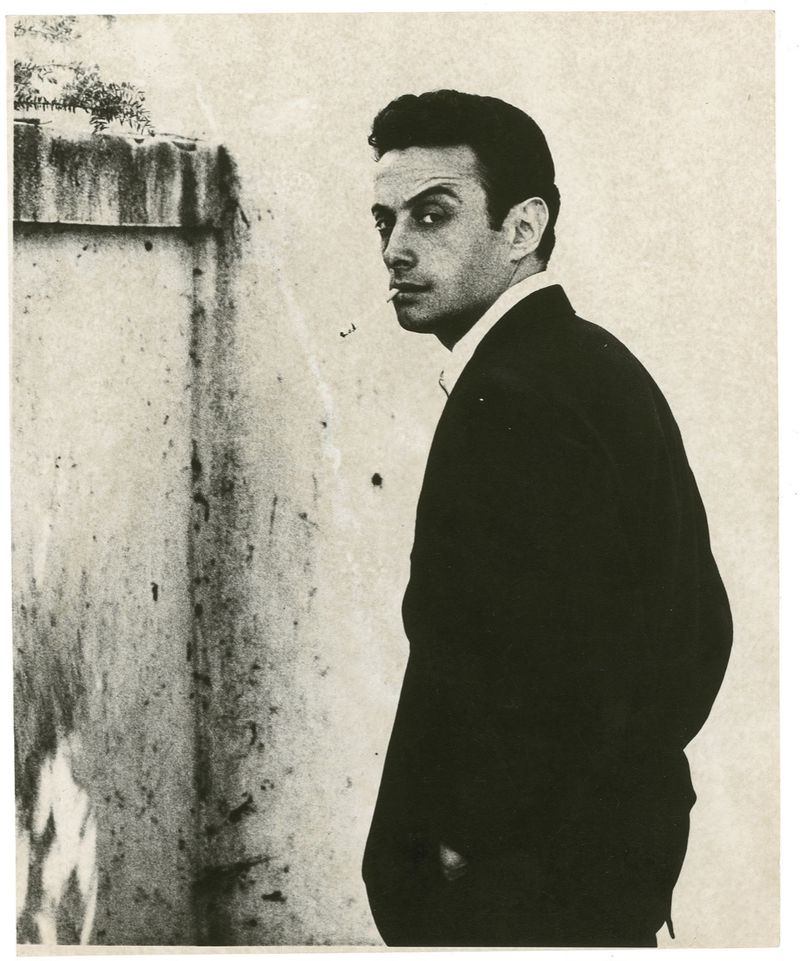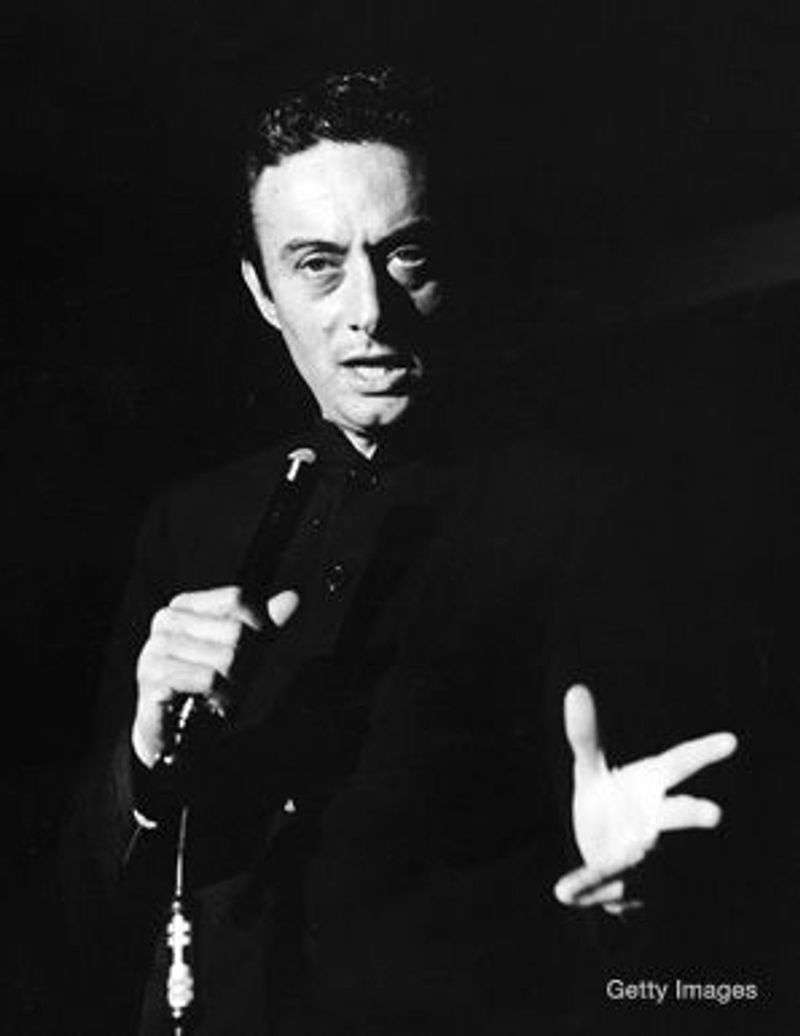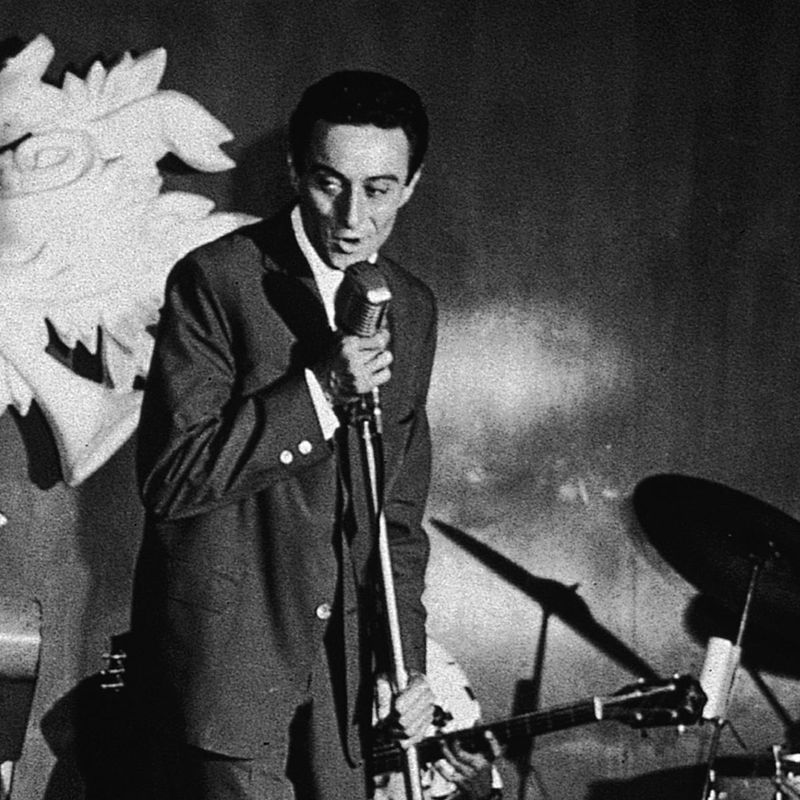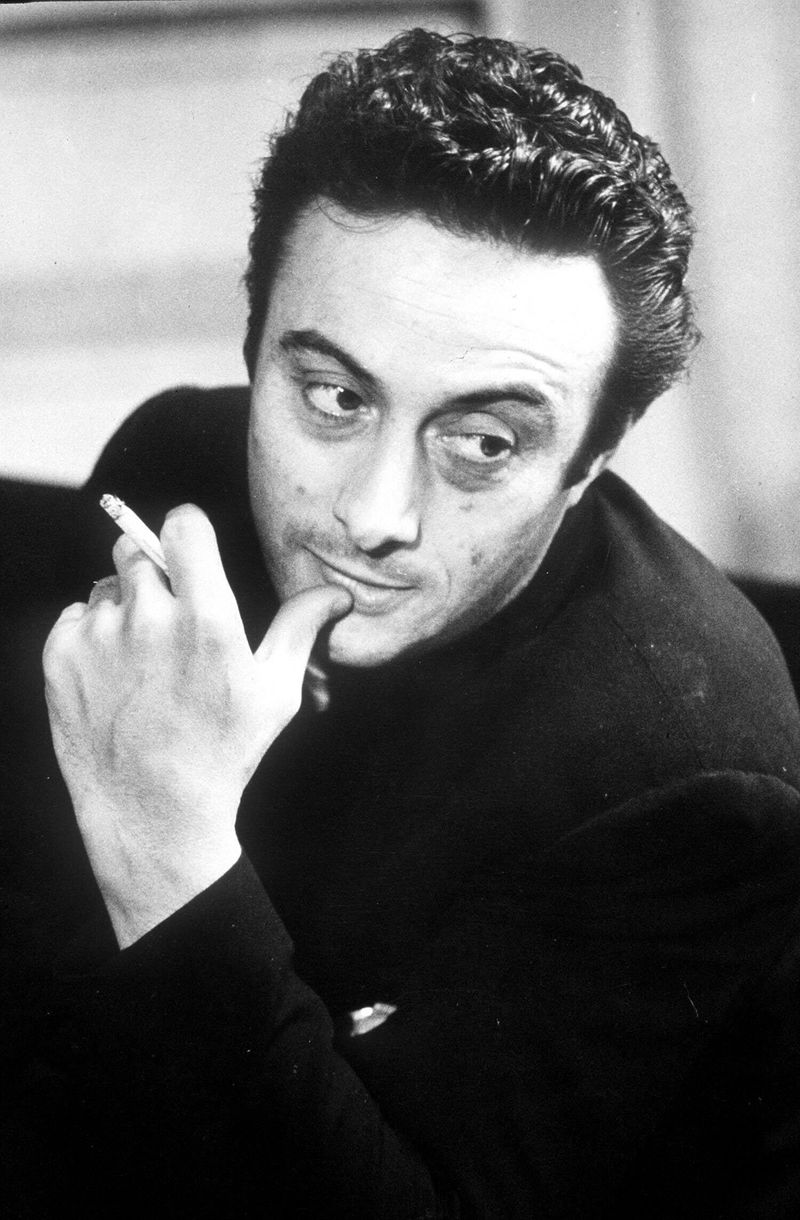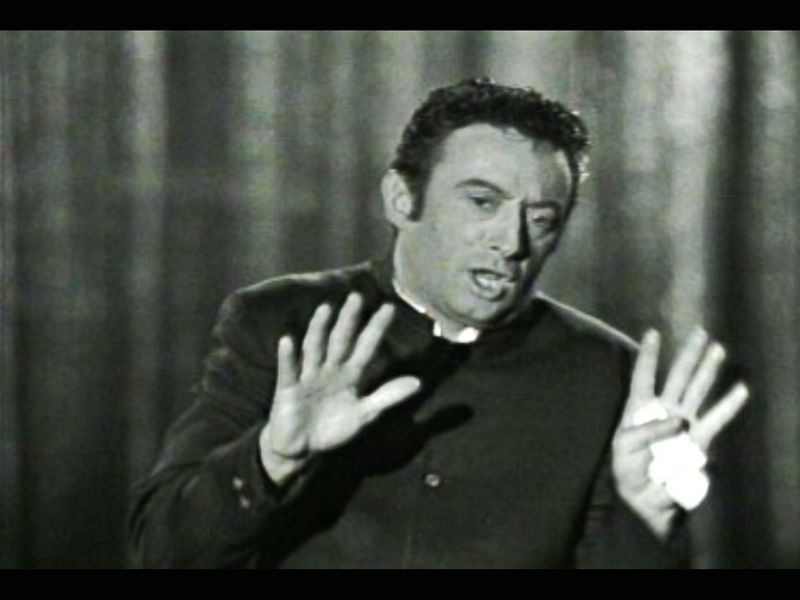Lenny Bruce was a revolutionary stand-up comedian, social critic, and satirist who changed the landscape of comedy forever. His fearless, uncensored approach to controversial topics like politics, religion, and social injustice paved the way for modern comedians. His humor wasn’t just about making people laugh—it was about making them think. Though he faced legal troubles and societal pushback, his influence endures today. Here, we highlight 21 of Lenny Bruce’s most iconic, thought-provoking, and funniest jokes, demonstrating the brilliance behind his groundbreaking style.
A hypocrite is the kind of politician who would cut down a redwood tree, then mount the stump and make a speech for conservation.
Lenny Bruce’s humor often cut to the core of societal ironies, as seen in this joke about hypocrisy. He used humor to highlight the contradictions in politics, delivering sharp commentary wrapped in wit. By focusing on the absurdity of a politician who defies his own message, Bruce makes us question the sincerity of public figures. His humor forces audiences to reflect and reconsider the messages they hear daily. This kind of satire is timeless, making us laugh while also inviting introspection. Bruce’s ability to blend levity with critical observation remains impactful.
Every day, people are straying away from the church and going back to God.
Bruce’s clever jab at organized religion showcases his knack for mixing humor with deep social commentary. By suggesting that people find spirituality outside traditional institutions, he provokes thought on personal faith. His ability to challenge established norms through humor reveals his skill in addressing serious topics lightly. This joke invites listeners to explore their beliefs, questioning the role of organized religion. Bruce’s comedic style encourages audiences to see beyond structures and find personal meaning.
If Jesus had been killed twenty years ago, Catholic school children would be wearing little electric chairs around their necks instead of crosses.
This joke is one of Bruce’s most famous, demonstrating his fearless approach to religion and its symbols. By reimagining the crucifixion, he challenges the audience to think about how symbolism evolves. Bruce’s humor often sparked controversy, yet it was a powerful tool for questioning established beliefs. His daring commentary didn’t shy away from sensitive topics, instead pushing boundaries to provoke thought. This joke is a testament to his boldness and creativity, inviting reflection on how society chooses its symbols.
Communism is like one big phone company.
Lenny Bruce cleverly critiques government control and bureaucracy with this joke, which remains relevant even today. By comparing communism to a monopolistic phone company, he highlights the absurdity of centralized power. His humor serves as a mirror, reflecting societal structures and prompting audiences to question authority. Bruce’s wit was not just entertaining; it was a method of engaging people in critical thinking. This joke leaves listeners pondering the similarities between political and corporate entities.
Take away the right to say ‘bad’ words, and soon you won’t be able to say ‘bad’ ideas either.
As a champion of free speech, Bruce encapsulates his stance on censorship with this joke. He warns against the slippery slope of restricting language, illustrating how it can lead to curtailing thought. By framing the issue humorously, Bruce effectively highlights the importance of protecting freedom of expression. His comedy often served as a battleground for civil liberties, challenging audiences to defend their rights. This joke remains a powerful reminder of the need to safeguard speech.
The liberals can understand everything but people who don’t understand them.
This humorous take on political ideologies cuts across both sides of the spectrum, revealing Bruce’s ability to poke fun at contradictions. By highlighting the irony within liberal circles, he fosters a dialogue on understanding differences. Bruce’s comedy transcends mere laughter, promoting introspection about our own biases. His jokes challenge audiences to recognize and confront their contradictions, encouraging open-mindedness. Through satire, Bruce unravels the complexities of human ideologies.
In the halls of justice, the only justice is in the halls.
This sharp critique of the legal system reflects Bruce’s personal battles, as he often found himself at odds with the law. His humor exposes the imperfections within judicial processes, making audiences reconsider their faith in justice. By using satire, Bruce sparks a conversation about the true nature of fairness and legality. His experiences lend authenticity to his observations, making them resonate even more. This joke invites audiences to question the effectiveness of the legal system.
A lot of people say that prejudice is ignorance. But prejudice is not ignorance. Prejudice is prejudging. Prejudice is just committing to a decision before having the facts.
Bruce’s thought-provoking observation on bias illustrates how comedy can educate as well as entertain. By redefining prejudice, he challenges audiences to examine their preconceived notions. His humor encourages critical thinking, prompting listeners to reassess their judgments and seek understanding. Bruce’s ability to blend education with entertainment makes his comedy timeless. This joke underscores the importance of confronting prejudice with knowledge and empathy.
If you can’t say ‘bad’ words, what happens when you stub your toe?
Through everyday human experiences, Bruce presents a simple yet effective argument against censorship. This joke humorously illustrates the natural human need for expression, even in trivial moments. By connecting with common experiences, Bruce makes a compelling case for the necessity of free speech. His ability to use humor to advocate for civil liberties resonates with audiences universally. This joke serves as a lighthearted reminder of the importance of expression in daily life.
Marijuana will be legal someday, because the many law students who now smoke pot will someday become congressmen and legalize it to protect themselves.
Bruce’s prediction showcases his ability to foresee societal shifts, using humor to highlight the inevitability of change. By pointing out the hypocrisy among future lawmakers, he cleverly critiques societal norms. His humor reflects an understanding of human nature and its influence on policy. Bruce’s ability to foresee trends through satire remains relevant, illustrating comedy’s prophetic power. This joke underscores the dynamic nature of social and political evolution.
There are never enough ‘I love yous’ in the world.
In a rare sentimental moment, Bruce reminds us of the importance of kindness and affection. This joke stands out for its simplicity and sincerity, offering a gentle reminder to express love. His humor often delved into deeper emotional truths, resonating with audiences on a personal level. Bruce’s ability to balance sharp wit with heartfelt messages showcases his versatility. This joke encourages an appreciation for love and human connection.
You can’t claim America is the land of the free when you keep arresting me for talking.
This direct response to Bruce’s legal troubles makes a powerful case for free speech. By highlighting the contradiction in being punished for expression, he underscores the importance of liberty. His humor often served as a battleground for civil rights, challenging audiences to defend their freedoms. Bruce’s experiences lend authenticity and urgency to his message, making it resonate deeply. This joke remains a poignant reminder of the fight for expression.
What’s the difference between a pickpocket and a peeping tom? A pickpocket snatches watches.
Classic wordplay showcases Bruce’s quick wit and love for twisting language. Through humor, he creates an amusing comparison between two petty criminals, engaging audiences with cleverness. His ability to play with words adds a layer of enjoyment to his comedy, highlighting the artistry in his craft. Bruce’s humor captures the essence of comedic timing, making audiences appreciate the nuances of language. This joke is a testament to his skill in engaging listeners.
The trouble with New York today is that it’s not as decadent as it was.
Bruce’s humorous take on the evolution of cities highlights nostalgia for a grittier time. By contrasting the past with the present, he invites reflection on cultural changes. His humor often captured the essence of societal transformation, making audiences ponder their environments. Bruce’s ability to critique urban life through comedy offers both laughter and insight. This joke resonates with anyone who’s witnessed change in their surroundings.
We are all the same, just wearing different disguises.
This deep philosophical insight wrapped in humor emphasizes common humanity. Bruce’s ability to deliver powerful messages through comedy encourages audiences to see beyond superficial differences. His humor fosters inclusivity, reminding listeners of shared human experiences regardless of outward appearances. Bruce’s style promotes empathy and understanding, making his message timeless. This joke inspires unity and compassion, encouraging audiences to connect with others.
The best thing about doing something illegal is that you don’t have to worry about the rules.
Bruce’s mischievous take on lawbreaking points out the irony in how criminals operate. By highlighting the freedom of ignoring rules, he humorously critiques the concept of legality. His humor often challenged societal norms, provoking thought on the nature of rules and compliance. Bruce’s ability to make audiences question the status quo through comedy remains influential. This joke invites reflection on the paradoxes within legal systems.
I won’t say ours is a bad culture, but we haven’t built anything to compare with the Golden Gate Bridge.
Bruce humorously critiques society’s achievements versus its shortcomings by comparing cultural works to iconic structures. His wit challenges audiences to evaluate the value placed on cultural and infrastructural accomplishments. Through humor, Bruce prompts listeners to reflect on what defines cultural success. His comedic style encourages critical thinking about societal priorities and values. This joke invites audiences to consider the true markers of cultural greatness.
A comedian’s job is to find where the line is drawn and step over it.
Bruce’s approach to comedy and free speech is best summarized by this joke. By advocating for crossing lines, he illustrates the role of comedians in challenging norms. His humor often pushed boundaries, encouraging audiences to question societal limits. Bruce’s legacy as a pioneer in free expression remains inspiring. This joke captures the essence of his comedic philosophy, demonstrating the transformative power of humor.
A lot of people say comedy comes from pain. No, it comes from really looking at pain and finding something absurd in it.
Bruce’s profound take on the nature of comedy reveals how humor helps people cope with hardship. By finding absurdity in pain, he transforms struggle into laughter, offering catharsis to audiences. His humor often drew from personal experiences, making his work relatable and impactful. Bruce’s ability to turn adversity into comedy resonates with anyone who’s faced challenges. This joke underscores the healing power of laughter.
The meaning of life is that nobody knows the meaning of life.
Bruce’s joke cuts through philosophy with a simple, universal truth, illustrating his ability to distill complex ideas into humor. By acknowledging uncertainty, he invites audiences to ponder deeper questions. His humor often explored existential themes, making audiences reflect on life’s mysteries. Bruce’s style encourages acceptance of the unknown, offering comfort in shared uncertainty. This joke provides a humorous take on a timeless question, sparking reflection.
You gotta be careful about your thoughts—they will make you break your own heart.
In a rare introspective moment, Bruce proves that even a comedian as bold as him had a poetic side. This joke highlights the power of thoughts and their emotional impact. His humor often blended insight with levity, encouraging audiences to reflect on their inner worlds. Bruce’s ability to convey profound truths through comedy fosters self-awareness and emotional growth. This joke is a gentle reminder of the importance of mindfulness.
